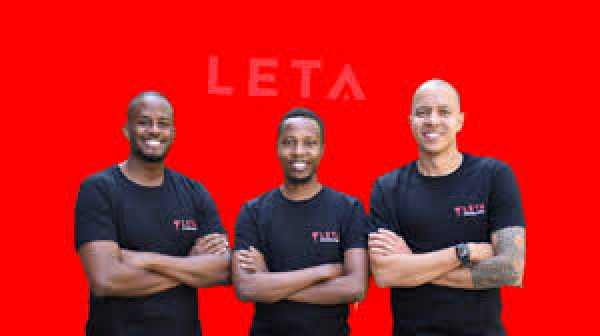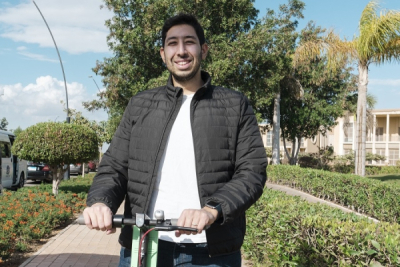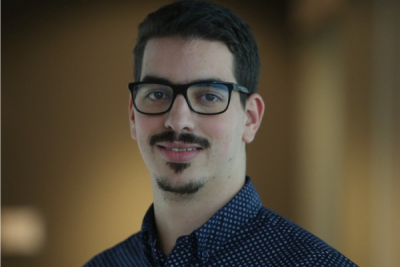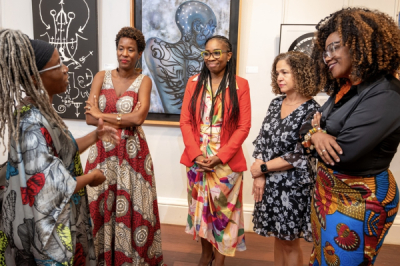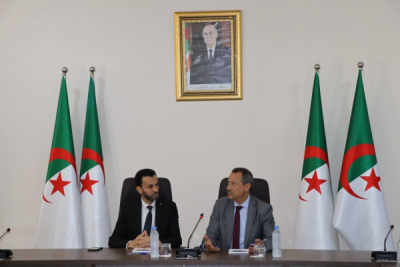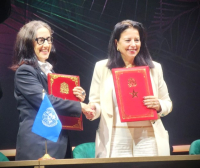Pan-African logistics technology company Leta has announced its official launch in Ghana, marking a major milestone in its mission to streamline delivery and supply chain operations across the continent.
Leta provides intelligent delivery and logistics solutions designed to automate operations for businesses in sectors such as fast food, grocery, and e-commerce. By leveraging advanced technology, the company helps its clients improve delivery efficiency, reduce operational costs, and enhance customer satisfaction.
As Ghana’s fast-growing retail and food service sectors continue to demand faster and more reliable delivery services, Leta’s entry into the market aims to support local businesses in meeting these evolving consumer expectations.
A young startup in Benin is making it easier for small farmers to sell their goods and reduce post-harvest losses. Africereal, a tech company based in Abomey-Calavi, built the Ikena platform to help cooperatives and producers reach more buyers.
Ikena allows farmers, cooperatives, and agribusinesses to create digital storefronts where they can display and sell their produce. The platform promotes transparency by giving buyers clear information on product origin, availability, and price.
Founded in 2017 in Abomey-Calavi, Benin, as AfriRice by Steve Hoda and Maya Dohou, the startup received the official “startup” label from the Beninese Ministry of Digital Economy and Digitalization on July 3, valid for three years.
Users can browse listings of fruits, tubers, grains, and processed agro-industrial products. The platform currently works only through a web browser—no mobile app is available yet.
“To sell your products, simply create an account, complete your seller profile, and post your listings with details such as name, quantity, price, description, and photos. Once approved, your listing will be visible to potential buyers,” the company states.
Buyers can message sellers directly to resolve issues. If problems persist, they can report disputes through their account. Ikena’s support team reviews each case and takes action when needed.
Delivery times depend on the seller and the shipping method, usually ranging from 3 to 7 business days. Once shipped, the buyer receives a tracking number to monitor the order.
Ikena focuses on making digital commerce accessible to farmers who are often left out of traditional online markets. Its design prioritizes ease of use and seller assistance.
This article was initially published in French by Adoni Conrad Quenum
Edited in English by Ange Jason Quenum
Kamal ElSoueni designs his projects by studying how people move in cities. He focuses on practical solutions that solve real problems, with a strong interest in clean technology applied to urban mobility.
ElSoueni, an Egyptian entrepreneur, co-founded and now leads Rabbit Mobility, a micro-mobility platform that offers electric scooters and bikes for short-distance travel.
Launched in 2020, Rabbit Mobility uses clean technology to reduce traffic congestion and pollution in Egypt’s major cities. The company operates a fleet of electric vehicles accessible through a dedicated mobile app.
The platform provides two rental options: on-demand “Unlock & Go” and longer-term “Day Rentals.” Users locate a vehicle, scan a QR code to unlock it, and return it to a designated area after their ride. The app also allows users to book vehicles, manage payments, and subscribe to plans such as Rabbit Prime, which offers discounts on unlocking and booking fees.
Available on both Android and iOS, the app includes a zone management system that ensures users follow traffic regulations. So far, Rabbit Mobility has saved over 50,000 kilograms of CO₂ and logged more than one million kilometers traveled.
ElSoueni earned a finance degree from the American University in Cairo in 2013. In 2018, he studied blockchain strategy at Oxford’s Saïd Business School.
He began his career in 2011 as a sales intern at PwC Egypt. In 2014, he joined Easy Taxi Egypt, a Brazilian urban mobility firm, as a business development analyst. A year later, he interned in marketing at Etisalat Misr, the telecom operator. In 2016, he became a business development analyst at Barclays Egypt, and later joined PwC Middle East as a management consultant, a role he held until 2019.
This article was initially published in French by Melchior Koba
Edited in English by Ange Jason Quenum
He develops tools to help companies monitor their online presence or digital reputation. With data-and media-driven projects, he's making a name for himself in Morocco's tech sector.
Anas Acherrat is a Moroccan entrepreneur specializing in marketing, technology, and artificial intelligence. He is the co-founder and CEO of Petalens, a startup focused on media monitoring, data analysis, and brand reputation tracking. Founded in 2022, Petalens offers a platform that allows companies to capture, track, and analyze real-time mentions of their brand, products, or competitors across all media channels. Powered by AI tools, the platform converts this data into actionable insights for crisis management, trend monitoring, and decision-making for marketing, communications, and executive teams.
Petalens provides detailed reports, sends instant alerts for significant changes in digital reputation, and offers a comprehensive view of a brand or sector’s media landscape. Its services cater to both large corporations and small and medium-sized enterprises (SMEs) looking to manage their image and optimize communication strategies through data-driven insights tailored to their needs.
The startup participated in the Orange Fab acceleration program in Morocco. Orange also selected Petalens as one of three Moroccan startups to represent the country at the 2025 edition of Viva Technology, the global innovation and startup event held in June.
Anas Acherrat also co-founded Creastation in 2020, a company specializing in IT services and digital marketing. In the same year, he co-founded Mouhim, a content aggregation platform and app that allows users to access articles and books based on their interests.
Acherrat earned a bachelor’s degree in marketing and finance from Al Akhawayn University in Morocco in 2016. He then received a master’s in strategic marketing from Imperial Business School in the UK in 2018. That year, he worked as a marketing consultant for Group Lotus in Norwich, England, a company known for developing technologies for the automotive industry. He then joined BPG Group, a marketing agency in Dubai, as an account executive, a position he held until 2019.
Melchior Koba
• My Afro Origins platform is dedicated for Afro-descendants seeking citizenship under a new return law recognizing descendants of enslaved Africans.
• Move aligns with global diaspora initiatives like Ghana’s “Year of Return” and Guinea-Bissau’s citizenship program.
• Platform offers application tools with a $100 fee, aiming to strengthen diaspora ties and development.
Benin officially launched My Afro Origins, a digital platform designed to accept applications for Beninese nationality from Afro-descendants. The portal went live on Friday, July 4, 2025.
The platform supports the implementation of Law No. 2024-31, passed on September 2, 2024, which for the first time guarantees the right of return and citizenship to descendants of sub-Saharan Africans who were deported during the slave trade and the transatlantic triangle trade.
“Our brothers and sisters in the diaspora, forcibly uprooted during the dark hours of the transatlantic slave trade, must reclaim their place within the African community,” said Benin’s Minister of Foreign Affairs, Olushegun Adjadi Bakari. “It is time to heal these wounds and recreate that sacred bond with those who, though physically distant, carry Africa in their hearts.”
The announcement comes as many Afro-descendants, especially African Americans and Afro-Caribbeans, seek to return to Africa, reconnect with their heritage, and contribute to the continent’s development. It also aligns with the United Nations’ International Decade for People of African Descent from 2015 to 2024, which promotes human rights, justice, and development for people of African heritage living outside the continent.
Benin has launched several initiatives to encourage the return of Afro-descendants and strengthen ties with its global diaspora. The Vodun Days festival has become a major event for the African diaspora, attracting visitors from Haiti, the United States, Brazil, and increasingly from Guadeloupe, all seeking to reconnect with their roots.
This initiative follows similar efforts in other countries, such as Ghana’s Year of Return in 2019 and Guinea-Bissau’s recent decision to grant citizenship and issue national passports to an initial group of people of African descent.
Beyond granting Beninese nationality to Afro-descendants, the program offers opportunities for economic, cultural, and educational development.
The My Afro Origins platform allows users to access information, prepare their application, and pay the $100 processing fee.
Lydie Mobio
Algeria is turning to its growing start-up ecosystem to help modernize its infrastructure and strengthen national innovation.
On July 9, the government created a joint commission linking the Ministry of Public Works and Basic Infrastructure with the Ministry of Knowledge Economy, Start-ups, and Micro-enterprises. The goal: involve start-ups in designing and executing large-scale infrastructure projects.
The collaboration aims to build a structured framework for start-ups to contribute to projects in railways, guided transport systems, and smart construction site management. At the center of the strategy lies digital innovation, applied research, and knowledge management.
To operationalize this, the government plans to launch exchange platforms and co-development workshops. These will connect start-ups with infrastructure stakeholders early in the process—from planning and monitoring through to project execution. Authorities want to embed local, agile, and cost-effective solutions into the fabric of national infrastructure.
This initiative forms part of the knowledge economy strategy introduced in 2020. Since then, Algeria has created a dedicated Ministry for Start-ups, a "Start-up" label, the Algerian Start-up Fund (ASF), and several incubators and support programs.
Currently, Algeria counts between 5,000 and 8,000 start-ups, with more than 1,200 having received the official “Start-up” label from the National Labeling Commission.
By involving these companies in strategic infrastructure development, the government aims to boost homegrown innovation, reduce technological dependence, and build national capacity. The wider ambition is to create skilled jobs and anchor entrepreneurship around the real needs of the domestic market.
This article was initially published in French by Samira Njoya
Edited in English by Ange Jason Quenum
The new Memorandum of Understanding (MoU) marks a significant milestone in advancing Morocco’s digital transition strategy while supporting broader regional development objectives.
Morocco’s Ministry of Digital Transition and Administration Reform, along with the United Nations Development Programme (UNDP), has signed a new cooperation agreement aimed at accelerating inclusive digital transformation across the Arab States and Africa. The event took place on the sidelines of the National Conference on Artificial Intelligence, held on July 1-2 in Rabat at the Mohammed VI Polytechnic University campus.
The conference brought together over 2,000 participants, including national and international experts, under the theme “An Efficient and Ethical AI Strategy Serving Our Society.” It also featured the signing of agreements with various public and private partners.
Commenting on the agreement, Marina Walter, Deputy Director of the Regional Bureau for Arab States at UNDP, said, “This partnership underscores our shared commitment to harnessing digital transformation as a powerful enabler of sustainable development and regional integration.”
The partnership focuses on strengthening digital public services, promoting responsible artificial intelligence (AI) use, and building institutional and regulatory frameworks to enable robust digital ecosystems that support sustainable development.
It reaffirms Morocco’s ambition to position itself as a regional hub for inclusive and rights-based digital transformation, contributing to UNDP’s global mission to shape equitable, secure, and development-driven digital cooperation.
Morocco’s rapid digital growth makes it a natural partner for the UNDP in driving inclusive digital transformation across the Arab and African regions. With major tech players like Oracle, Naver, Nokia, and Cisco investing heavily, Morocco has quickly become a leading technology hub, supported by strong infrastructure, strategic location, and a skilled workforce.
Its Digital 2030 strategy — targeting over 240,000 new digital jobs by 2030 and widespread public service digitization — aligns closely with the UNDP’s goals of sustainable, inclusive, and rights-based digital growth. The country provides a strong foundation to scale digital public services and responsible AI. This makes it an ideal anchor for the partnership, helping deliver tangible development outcomes and advance the Sustainable Development Goals.
Hikmatu Bilali
Lara Dendy Young discovered the tourism industry while working at a lodge in South Africa, where she witnessed how travel could both support local communities and protect the natural environment.
A South African entrepreneur with a focus on ecotourism and technology, Dendy Young co-founded Conservio, an innovative online booking platform dedicated to nature-based travel experiences.
Launched in 2020, Conservio makes it easier for travelers to access natural destinations while contributing to environmental preservation. Partner accommodations commit a portion of their revenue to support local conservation initiatives, employment creation, and circular economy efforts.
The platform actively promotes responsible tourism practices among its partners and ensures that each booking delivers tangible benefits to nearby communities. Conservio currently lists more than 500 accommodations—including lodges, cabins, farms, floating houses, and glamping sites—spread across South Africa, Mozambique, and Namibia.
“By selecting sustainable and stylish accommodations, from intimate cabins and farm stays to luxury lodges in nature reserves, Conservio offers travelers access to getaways beyond city limits, where every booking directly supports nature conservation,” explains Lara Dendy Young.
In January 2025, Conservio raised $1 million in a funding round led by E4E Africa, with participation from Volve Capital, Living Hope Ventures, and several angel investors.
Lara Dendy Young holds a bachelor’s degree in business administration from Hartwick College (2015, United States) and a master’s in the same field from the African Leadership University (2021).
She began her career in 2012 as operations manager at Deluxe Coffeeworks. In 2015, she joined Classic Portfolio, a network of independent lodges and camps in Africa’s wild regions, as an international sales executive. In 2019, she was promoted to head of sustainability, a position she held until founding Conservio in 2020.
This article was initially published in French by Melchior Koba
Edited in English by Ange Jason Quenum
He is interested in complex systems and how they function. He focuses on tools that optimize teams’ time and resources.
Ghassen Menaouar, a Franco-Tunisian tech entrepreneur and expert in creating and developing digital solutions, founded Guepard, a startup specializing in simplifying database management for businesses.
Guepard is developing a platform that allows databases to be cloned, tested, versioned, and deployed in seconds without physically duplicating the data. This optimizes resource usage and streamlines the work of development, data, and DevOps teams.
The platform applies a Git-like logic to databases, offering isolated, traceable environments. It provides the ability to create branches, snapshots, and instantly switch between different versions using a "time travel" function. This approach shortens development cycles, speeds up testing, ensures data compliance, and reduces both storage costs and time spent on operations.
Ghassen Menaouar is an alumnus of Orange Digital Center in Tunisia. In June 2025, he participated in Viva Technology, the annual gathering dedicated to tech innovation and startups.
Before founding Guepard, Menaouar launched Kreatik in 2017, an IT architecture and development consulting firm he led until 2022. He is also a founding partner of Adservio IT Quality Experts, established in 2021, which assists companies in building their digital experience.
Menaouar earned a degree in computer engineering from the École Supérieure Privée d’Ingénierie et de Technologies (ESPRIT). He also holds a master’s in intelligent systems and data management from Paris Dauphine University (PSL). His professional career began in 2010 in France at Linedata, a tech company, where he worked as a software engineer.
In 2011, he joined automaker Renault Group as a product analyst. In 2013, he worked as a systems analyst at GMF Assurances before being appointed software consultant at Monceau Assurances. Between 2012 and 2017, he served as an auditor and expert at RATP, a global urban transport operator. From 2020 to 2022, he was a performance expert and auditor for GRDF, France’s main gas distributor.
Melchior Koba
McKinsey estimates that artificial intelligence (AI) could contribute as much as $1.2 trillion to Africa's economy by 2030. Unlocking this potential will largely depend on strategic talent development, a path Cameroon is now strongly pursuing.
Cameroon aims to train 60,000 artificial intelligence (AI) specialists by 2040, including 40% women, as part of its National AI Strategy (SNIA). Minister of Posts and Telecommunications Minette Libom Li Likeng recently unveiled this initiative, which is part of a broader vision to position the country as an African hub for artificial intelligence.
The strategy's key objectives include creating 12,000 direct jobs, developing 12 sovereign solutions with significant socioeconomic impact, and anticipating an AI contribution to national GDP of between 0.8% and 1.2%. Special attention is being given to linguistic diversity, with efforts to develop AI models that incorporate national languages. This is seen as a crucial way to boost digital inclusion and promote local cultural heritage.
To achieve these ambitions, however, Cameroon must address several critical gaps. The country still lags significantly in digital infrastructure, particularly in deploying modern data centers, developing secure cloud platforms, and ensuring consistent broadband connectivity, especially in rural areas.
This reality is reflected at the continental level in the latest ranking by the International Telecommunication Union (ITU). Cameroon scored 46.3 out of 100, placing 30th out of 42 African countries. This result falls below the continental average of 56, underscoring the need for the country to accelerate its efforts.
Addressing Talent Shortages and Promoting Inclusion
Training qualified talent remains one of the main challenges. A shortage of engineers, researchers, and AI specialists is holding back sectoral growth. To address this, Cameroon will need to invest heavily in creating centers of excellence, establish schools and institutes focused on advanced technologies, and integrate AI training programs into secondary and university curricula. Structuring partnerships between universities, tech companies, and public institutions will be essential to align educational content with market needs.
In addition, it will be crucial to implement continuing education and professional retraining programs to equip a broad segment of the population with the digital skills needed for tomorrow’s economy. Expanding access to high-speed internet, especially in remote areas, must accompany this momentum, as should the stimulation of an innovative entrepreneurial ecosystem capable of attracting investors and fostering the emergence of local solutions.
The goal of training 40% women is ambitious and commendable. Achieving it calls for proactive measures such as awareness campaigns, mentoring, support for women’s careers in tech, and efforts to combat gender stereotypes in science-related fields.
Despite these challenges, encouraging signs are emerging. The recent adoption of a data protection law and the first national consultations on AI reflect a clear political will to establish a robust regulatory framework. This is an essential condition for structuring the sector and building trust among stakeholders.
Samira Njoya
More...
- Somali officials held talks with international leaders during the WSIS+20 meeting in Geneva
- Discussions focused on digital inclusion, youth training, e-governance, and cybersecurity
- Somalia ranks low on global digital development indexes but is taking early steps to improve
Somalia is aiming to boost international cooperation in digital development, according to government statements made on the sidelines of the WSIS+20 review held in Geneva from July 7 to 11. The event marked 20 years since the launch of the World Summit on the Information Society.
Mohamed Adan Macallin, Somalia’s Minister of Telecommunications and Technology, met with Doreen Bogdan-Martin, Secretary-General of the International Telecommunication Union (ITU), and Cosmas Luckyson Zavazava, Director of the ITU’s Telecommunication Development Bureau. He also held talks with his counterparts from Malaysia and Djibouti, Fahmi Fadzil and Ridwaan Abdulaahi Bahdoon.
Discussions covered key areas such as digital inclusion, training in digital skills for youth and civil servants, digital governance, and cybersecurity.
These efforts are part of Somalia’s broader push to promote technological progress and digital access as drivers of social and economic development. However, the country still faces significant challenges. In the United Nations 2024 E-Government Development Index (EGDI), Somalia ranked 191st out of 193 countries, with a score of 0.1468 out of 1—well below the African average of 0.4247 and the global average of 0.6382.
In terms of cybersecurity, Somalia was placed in category 4 out of 5 in the ITU’s 2024 Global Cybersecurity Index, indicating only a basic level of commitment. The country scored 37.38 out of 100, highlighting the need to improve technical measures, legal frameworks, and capacity building.
For now, the talks in Geneva remain at the discussion stage, with no formal agreements signed. However, in May, Somalia took a first concrete step by signing a memorandum of understanding with Malaysia’s national cybersecurity agency, a country widely recognized for its leadership in this field.
Cameroonian tech entrepreneur Bill Agha is building a dynamic ecosystem for innovation, education, and entrepreneurship across his country. He runs contests, workshops, and training programs to meet the real needs of students and young tech project leaders.
Agha graduated in computer science from the University of Bamenda in 2019. In 2020, he founded the Tech Innovation Center (TiC) Foundation, a nonprofit that leverages technology to develop solutions tailored to African communities.
Since its launch, TiC Foundation has focused on nurturing tech talent and boosting digital entrepreneurship. The organization offers tools, training, and guidance adapted to Cameroon’s local realities.
TiC Foundation operates three main programs. The TiC Startup Accelerator Program (SAP) mentors early-stage startups, connects them with experts, and provides business training. The TiC Summit, a national innovation competition for high school students, blends project pitches with design thinking, prototyping, and entrepreneurship workshops. The third, TiC Bootcamp, delivers hands-on training to prepare young people for careers in tech.
Beyond TiC, Bill Agha serves as president of the Golden Toastmasters Club and works as technical lead and regional program coordinator at Open Dreams Educational, an organization that helps students in Cameroon and South Africa access international scholarships.
Agha combines his passion for technology and education to empower the next generation. Through TiC Foundation and Open Dreams, he has trained thousands of youths and supported more than 100 startups, playing a key role in shaping Cameroon’s emerging tech landscape.
This article was initially published in French by Melchior Koba
Edited in English by Ange Jason Quenum
Personalization, Data, Planning: How AI Is Transforming African Education
Africa faces a deep education crisis. Student numbers surge, teachers are scarce, and infrastructure lags behind. In 2024, UNESCO reported that 58% of adolescents aged 15 to 17 in sub-Saharan Africa do not attend school. The continent counts 98 million children outside the education system. Many schools lack electricity, internet, and basic resources.
AI Offers a Lifeline for Overworked Teachers
Teacher shortages cripple African classrooms. UNESCO says Africa needs to recruit more than 16.5 million teachers by 2030 to keep up with population growth. AI cannot replace teachers, but it can help them. Automated grading, custom teaching materials, and lesson planning tools lighten the load. In Kenya, teachers use the Kalasik assistant—a chatbot that generates lesson plans and automates repetitive tasks.
AI Delivers Personalized and Inclusive Learning
AI adapts learning to each student’s needs. Overcrowded classrooms make individual attention impossible, but smart systems change that. Students access interactive exercises, tutorials, and tailored feedback—even after school hours. Personalized learning keeps students engaged and cuts dropout rates, especially in rural and marginalized communities.
In West Africa, the Kwame for Science assistant tutors science students in 11 countries. It boasts an 87% accuracy rate for its top-three answers and serves 750 users over several months.
Data-Driven Decisions Shape Education Policy
AI gives education leaders real-time data. Ministries of Education spot low-enrollment regions, forecast teacher demand, and allocate resources where they matter most. Predictive analytics shifts planning from reactive to proactive, using demographic and school data.
Governments Put AI at the Heart of Education Strategy
Several African nations now weave AI into their education plans. Kenya launched a national AI strategy for 2025–2030 with UNESCO, focusing on digital skills in schools. Zambia and Côte d’Ivoire have also prioritized education in their AI strategies, promoting data analysis and personalized learning. Nigeria develops AI skills and integrates AI in education through partnerships with universities and private companies. Senegal, Burkina Faso, and Congo have added AI in education to their digital roadmaps.
Major Hurdles Remain
Despite these advances, African education systems face steep challenges in scaling AI. To begin with, poor digital infrastructure slows down deployment in many regions. Moreover, Teacher training on digital tools remains insufficient. Finally, data privacy and ethics are often under-regulated and sustainable funding models for EdTech remain elusive.
AI solutions need heavy investment and a solid business model. Protecting student data requires strict ethical rules. Tools must fit local languages and cultures. Above all, governments, partners, investors, and the private sector must commit long-term support to move beyond pilot projects and build a sustainable education system.
Samira Njoya
• Hamet Sow’s startup Intersip International uses AI and voice tech to deliver services via mobile
• The platform offers real-time, localized info through SMS, voice calls, and APIs across West Africa
• Sow combines tech, data collection, and youth training to drive digital inclusion and social impact
Senegalese entrepreneur Hamet Sow (pictured) is using artificial intelligence to improve access to information in West Africa, with a focus on making mobile technology a tool for daily life and development. He sees strong potential in these everyday digital habits to structure access to services and data across the region.
Sow is the CEO and founder of Intersip International, a company he launched in 2023 to focus on AI and natural language processing with a strong social impact mission. The company develops tools that promote digital inclusion, open access to information, and help train young Africans in digital skills.
One of Intersip’s main innovations is a platform that delivers real-time, personalized services through SMS, voice calls, and APIs. It is designed to reach West African communities and supports multiple local languages through a conversational AI called FatimAI, which is accessible via voice calls.
In addition to information delivery, the platform supports field data collection, tracks indicators, monitors surveyor activity, geolocates responses, and performs real-time quality checks.
Hamet Sow holds a PhD in international development from Paris Dauphine University in France. He began teaching numerical analysis in 2015 at Gaston Berger University and later joined the UN Population Fund in Senegal in 2019, where he led monitoring, evaluation, and learning efforts. Between 2021 and 2024, he worked as a research analyst at the International Food Policy Research Institute and later at the World Bank.
A former participant in the Orange Corners Senegal startup incubator, Sow won second prize at the 2024 Dakar Innovation Days for his work with Intersip International.


